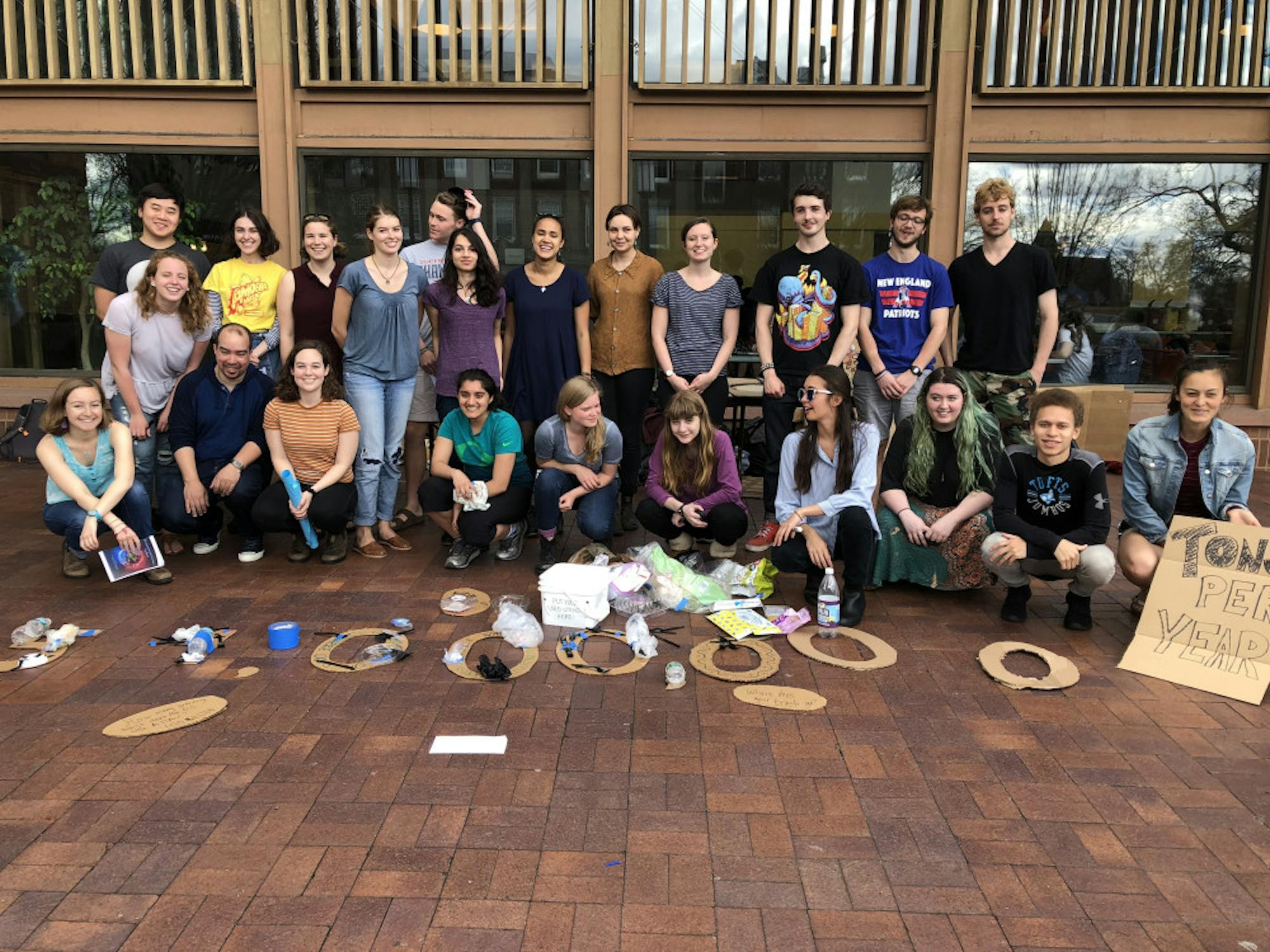For an hour last Thursday, the Environmental Justice and World Literature course taught by Associate Professor of English Modhumita Roy displayed a public art installation on the lower patio of Mayer Campus Center. The sculpture was made up of cardboard from Mail Services and used utensils collected from the campus center.
According to senior Ania Ruiz, the students constructed cardboard numbers spelling out "254,000,000" — the number of tons of garbage that Americans generated in 2013, according to the Environmental Protection Agency — and then asked passers-by to attach an item of garbage to the numbers. The class also passed out flyers with information about environmental justice.
The project began as a class assignment to organize, plan and execute an entirely student-run social action, Roy said.
Ruiz said that the 25 students in the class designed the project and put it in motion collectively.
"This was completely up to our interpretation and after much discussion we decided on putting together a public art performance piece using the waste Tufts students produce," Ruiz told the Daily in an email.
First-year Rachel Marston, a student in the class, commented on the impact that the class hopes to generate on campus with the installation.
"The sculpture represents the amount we throw away and implicates us in the process of waste. I hope people just begin to understand the sheer amount of garbage we generate," Marston told the Daily in an email.
Ruiz also voiced the class's desire to increase awareness of our generation's wastefulness.
"That's what the public sculpture was about, interacting with people around the [campus center], engaging them in thinking about their waste production, and hoping to make waste at Tufts a little more public," Ruiz said.
Roy spoke about the origin and evolution of the course, which is offered each spring and taught alternatively by herself and English Professor Elizabeth Ammons.
"The class, 'Environmental Justice and World Literature,' was originally designed by [Ammons] ... She had designed it as an American Literature course. Together, we revised its focus to world literature," Roy told the Daily in an email.
Although the primary text of the course is "Sharing the Earth: An International Environmental Justice Reader," Roy expressed that the class explores global and local topics.
"Our focus remains global but we also learn about local issues and we invite and encourage students to think of becoming part of making change," Roy said.
Environmental Justice and World Literature class installs sculpture of paper, plastic waste

Students from the Environmental Justice and World Literature class pose outside the Campus Center with their installation on April 26.





